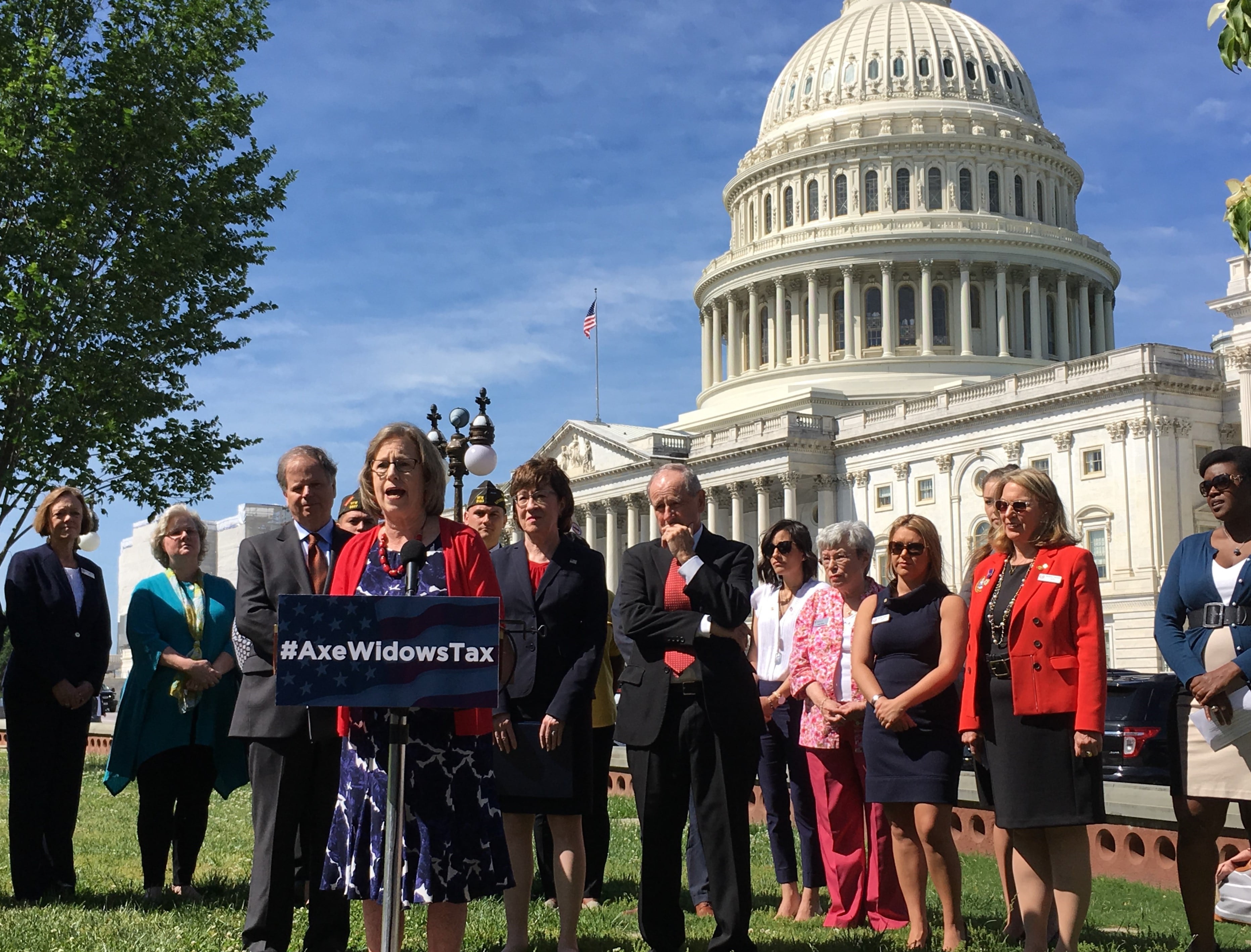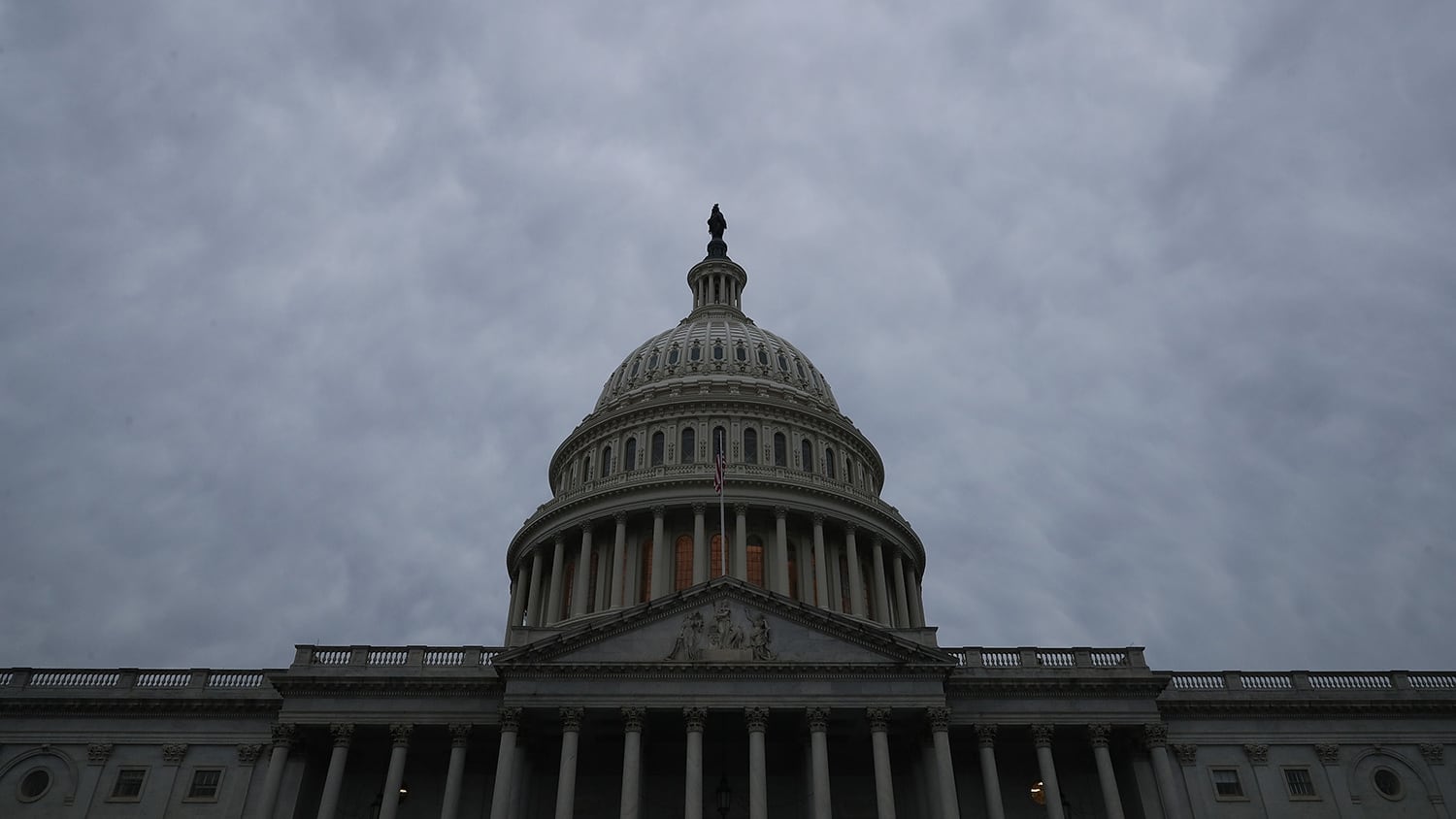Democratic leaders on Wednesday touted a host of military personnel improvements as the reason skeptical members of their own caucus should support the annual defense authorization bill, with limited success.
The sweeping $738 billion budget policy legislation passed through the House 377-48 and appears headed to become law for the 59th consecutive year, an achievement lawmakers from both parties offer as evidence that military needs can rise above Capitol Hill partisan discord.
But multiple Democrats who supported the measure over the summer broke ranks on the final draft, which excluded language supporting transgender recruits entering the military, restrictions on the president’s ability to transfer military money to unapproved projects (like his controversial southern border wall), and several other provisions unrelated to the Defense Department.
RELATED

House Armed Services Committee Chairman Adam Smith, D-Wash., countered that the measure is “the most progressive defense bill we have passed in decades.”
A day earlier, he held back-to-back press conferences celebrating the bill’s inclusion of paid parental leave for federal workers and the elimination of the military “widows tax.” Before Wednesday’s vote, he highlighted the 3.1 percent pay raise for troops set to start next month and planned improvements to military housing.
“It contains major wins for Democrats and working people, and promotes our national security,” he said. “Because of this hard work, our bill will have real impacts on Americans leading real lives.”
It also earned praise from military advocates who lauded the provisions as transformative for many military families.
“We are extremely pleased,” said Kelly Hruska, government relations director for the National Military Family Association.
“The bipartisan bill makes positive changes for military families including the elimination of the widow’s tax, paid parental leave for federal employees, improvements to the My Career Advancement Accounts and an increase in the reimbursement for the relicensing and recertification due to a (change of station) moves for military spouses.”
The pay raise is the largest for troops in a decade and goes into effect on Jan. 1. For junior enlisted troops, it will mean roughly $815 more in pay in 2020. For senior enlisted and junior officers, the hike equals about $1,500 more. An O-4 with 12 years service would see more than $2,800 extra next year under the increase.
Military families affected by the “widows tax” (about 65,000, according to outside advocates’ estimates) lose several thousand dollars a year because of how federal rules handle a pair of survivor benefits: Dependency and Indemnity Compensation and the Survivor Benefit Plan.
Under the bill, families would receive their full benefits payouts phased in over three years, starting Jan. 1, 2021.
The authorization bill also includes a process for the defense secretary for the first time to offer payouts to the victims of military medical malpractice cases.
House progressives had pushed for a partial repeal of the Feres Doctrine, the 1950s Supreme Court decision cited repeatedly by lower courts to block troops from seeking damages for war-related injuries or on-duty accidents.
RELATED

But Smith and other supporters called the compromise language an important step ahead on the issue.
“Service members and their families finally have a path forward in seeking compensation for medical malpractice committed by military health care providers,” Rep. Jackie Speier, D-Calif. who had pushed for the Feres repeal, said in a statement before the vote. “And the Defense Department will have to take their claims seriously.”
On military housing issues — a focus of lawmakers since a Reuters investigation last year found widespread problems with mold, lead, vermin and unaddressed repairs at private military residences across the country — lawmakers mandated the creation of a new “tenant bill of rights” for military families, and directed more money in the fiscal 2020 budget for contractor oversight and tenant advocacy programs.
The bill also includes new domestic violence and sexual assault protections, and new procedures for considering discharge upgrades of troops who experienced either of those issues in the ranks.
The Senate is expected to vote on the authorization bill early next week. President Donald Trump on Twitter Wednesday voiced support for the measure, urging lawmakers to move quickly on the legislation.
Leo covers Congress, Veterans Affairs and the White House for Military Times. He has covered Washington, D.C. since 2004, focusing on military personnel and veterans policies. His work has earned numerous honors, including a 2009 Polk award, a 2010 National Headliner Award, the IAVA Leadership in Journalism award and the VFW News Media award.




